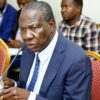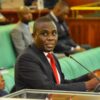News
1789 French Revolution repeating itself in Africa

On May 5, 1789, the people of France started a peaceful demonstration against the leadership of King Louis XVI. The revolution that started as a peaceful demonstration later turned violent after the king failed to meet the demands of the protesters. Among the reasons that made Frenchmen rise against their government was the financial crisis and the rise of the prices of bread that was affecting the country by then and the dictatorship of the regime.
According to media reports, the protests started over the rising costs of bread and fuel. The main trigger for the protests was the government’s decision to increase the price of a loaf of bread from one Sudanese Pound to three (about $0.02 to $0.06) and fuel, but later widened to call for an end to the 30 year reign of President Omar al-Bashir.
In less than a week, the demonstrations, which began on December 19 in the city of Atbara, quickly spread across the country, including to the capital Khartoum.
In January 2018, large protests started on the streets of Khartoum, Sudan’s capital, in opposition to the rising prices of the basic goods including bread. The protests grew quickly and found support from different opposition parties. Youth and women’s movements also joined the protests.
On 19 December 2018, a series of demonstrations broke out in several Sudanese cities, due in part to escalating costs of living and deterioration of economic conditions at all levels of society. The protests quickly turned from demands for urgent economic reforms into demands for Omar al-Bashir to step down.
The violence of the government’s reaction to these peaceful demonstrations sparked international concern. On 22 February, al-Bashir declared a state of emergency and dissolved the national and regional governments, replacing the latter with military and intelligence-service officers.
Among the reasons for the success of the French Revolution was the support of the army General Fredrick Lafayette who advocated for a governing body representing the three social classes, and drafted the Declaration of the Rights of Man and of the Citizen. Named commander of the Paris National Guard as violence broke out in 1789, Lafayette was obligated to protect the royal family, a position that left him vulnerable to the factions vying for power.
On several occasions the army in Sudan helped in undermining Bashir as it did not interfere with the protesters.
Although it failed to achieve all of its goals and at times degenerated into a chaotic bloodbath, the French Revolution played a critical role in shaping modern nations by showing the world the power inherent in the will of the people.
Africans have also borrowed the idea of the revolution. From Zimbabwe, the DRC, Algeria, and now Sudan, the fire might spread further, but we don’t know where next.
Some of the drivers of the French Revolution were high taxation, financial crisis, dictatorship, the American war of Independence, the influence of Maria Antoinette, the rise in the prices of bread, the Catholic Church, extravagancy, land distribution, compulsory military recruitment and the class system in France. A similar environment thrives in many of African countries.
Back ground info through Leonardo Newtonic and Wikipedia
Comments























